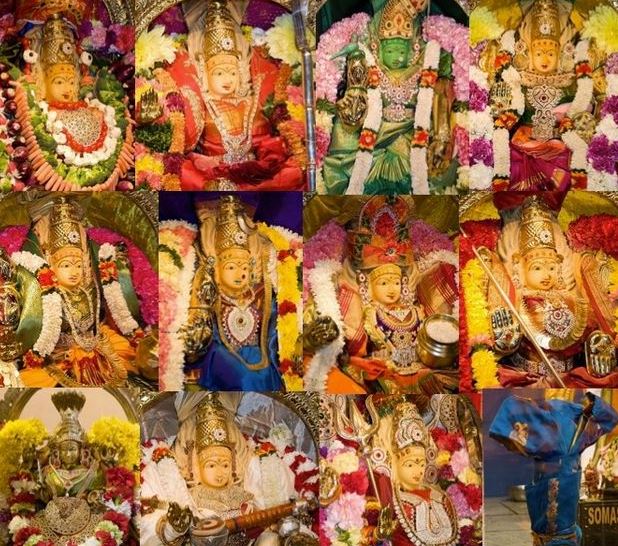By Shree Baphna, AsAmNews Staff Writer
Recently, there has been news that some Indian Americans are now calling for a “re-branding” to identify themselves as “Hindu American”.
The idea was discussed at a “Hindu American Summit for Political Engagement” this month in Washington, D.C.
The main driver behind this ‘re-branding’, according to Shekhar Tiwari of the Americans 4 Hindus Coalition, is to distance themselves from the recent diplomatic confrontations between India and Western powers. This comes in light of the Ukraine-Russia war, where India has refused to publicly condemn Russia for its acts of violence. Allegedly, this has led to some backlash against Indian Americans from other Americans.
As someone who is an Indian American but does not necessarily identify as Hindu, this call to re-brand ourselves has come across as misguided and even problematic. In this op-ed, I explore reasons why being known as Hindu Americans could be more harmful than helpful.
Currently, the Indian political landscape is dominated by the right-wing policies of Prime Minister Narendra Modi and his party, the Bhartiya Janta Party (BJP). Such policies have resulted in a highly contentious divide between Hindus and Muslims, as a result of the BJP’s pro-Hindu and anti-Muslim stance. This move to re-name ourselve Hindu American- in my eyes- only adds fuel to the fire and empowers the far-right political parties of India. It pushes forth an agenda that is classist, caste-ist, and of course, anti-Muslim.
Hinduism is a religion that perpetuates the caste system. In fact, many members of lower castes in India converted to Christianity or Islam in an attempt to escape this inhumane system. Already, Indian immigrants in the US have felt the impacts of the caste system, so much so that the state of California has enacted laws to prevent discrimination on the basis of caste. If being “Hindu” were to become the forefront of all Indian immigrant identities within the US, this could lead down a slippery slope that furthers caste-based discrimination and treatment.
Second, although personally I identify as an atheist, my family follows a religion called Jainism- another minority religion within India that is non-Hindu. Re-branding “Indian American” as “Hindu American” would simply not apply to my family, because we are not Hindu. Thankfully for the Jain community, the inconvenience stops there- it is not a religion that experiences persecution on grounds of being non-Hindu, in the same way that Muslims, Christians, or Sikhs do.

In another article published on this topic of rebranding, the author has criticized the term “Hindu American”. However, he refers to the controversy of the term “Hindu American” only insofar that it excludes “Caribbean Hindus, UK-based Hindus, or Afghan Hindus” amongst others. There is no mention of the fact that the term is not reflective of the religious diversity that exists within India. It overlooks the ‘Indian’ identity as being intersectional itself.
This leads to my third point, which is championing religious identity over national identity plants seeds of divide and the othering of minority groups that are all housed under a particular nationality. The author’s lamentation of leaving behind Hindus of different nationalities echos the much protested Citizenship Amendment Act that was passed in India in 2019. According to this act, India would only grant citizenship to Hindu refugees from its neighboring Muslim-majority countries. This leaves many other non-Hindu refugees- who flee from terrorized and war-torn areas such as Afghanistan- without a place to go. This singling out of Hindus as an exclusive group for whom India will remain a beacon, carries an underlying nationalist agenda that aims to eliminate other religious minorities- especially Muslims.
**********
To further flesh out my thoughts and to gain a deeper first-hand perspective on this, I spoke at length to one of my friends who identifies as Muslim American. For the sake of their privacy, I will be keeping their identity anonymous and refer to them as Sara in this article.
From Sara’s point of view, this “re-branding” was almost too benign of a term to describe what is happening. In their eyes, using ‘Hindu American’ was more of a tactic for Indian Americans to distance themselves from other communities within India.
Sara had lived in India recently as a young adult and they recount how difficult it was to even find an apartment for themselves as a young Muslim person. They recalled how landlords would specify they wanted someone who was a vegetarian- a requisite that automatically excluded Muslims from being possible tenants.
“I would literally tell them I would be vegetarian while living in the apartment. I would offer to do that, but all I got was no response from the landlord. It was apparent that something deeper was at play here”, Sara said.
In Sara’s opinion, the need to distance oneself from their Indian American identity by adopting Hindu American instead, is a misguided. They speculate that Indian Americans are much more rigid about sticking to their Indian roots. With that, comes a certain romanticized image of India. Perhaps this is a coping mechanism- a way to remain true to their Indian identities and to feel closer to home. Their reference point is the India they left when they immigrated to the US. However, that image they have is hardly the same as compared to what India is today. This also may result in a disconnect from the current political landscape in India. Indian Americans living in the US may not fully understand the nuances behind the BJP’s actions. What Hindu might mean to them is not what being Hindu means in India today.

Sara acknowledges that majority of Indian immigrants residing in the US are not Muslims. “However, we must understand that the reason why that happens is that Muslims in India are more likely to be of lower-income backgrounds and therefore cannot afford to immigrate”. Of course, this is no reason to discount them.
From a legal perspective, Sara went on to highlight how the words ‘secular’ and ‘socialism’ were added to the preamble of the Indian Constitution 20 years after the constitution was composed in the 1950s. Despite this, the Indian BJP government has taken an ‘originalist’ perspective as a way to justify their pro-Hindu, anti-Muslim/anti-minority tactics. Since those two words were never part of the original constitution, the BJP government claims they should not even be considered.
Overall, what Sara and I both felt was a misplaced sense of love and belonging that Indian Americans feel about India. While not a negative thing by any means, it tends to gloss over the deeper troubles India is currently facing with respect to their pro-nationalist and anti-secular government. Most importantly, Sara stated how important it is to check our privilege as Indian Americans in the first place. Re-branding ourselves as Hindu Americans is a defense tactic against a problem that pales in terms of severity when comparing it to the discrimination and danger that Muslims or lower-caste communities face within India.
This article is not to say that I or Sara are Hinduphobic. We are against Hinduism becoming synonymous with being an Indian immigrant in the United States. That is a very poor representation of what India itself is like internally, and is a form of oppression against those who struggle to attain basic rights in India’s current nationalist environment. If “Hindu American” were a term that was created in addition to the term “Indian American”, it would leave space for other religious identities that exist within India to also claim their nationhood and citizenry.
AsAmNews is published by the non-profit, Asian American Media Inc.
Happy Lunar New Year. Please support our Lunar New Year $5,000 matching grant challenge. A generous donor is matching dollar for dollar every donation through February 16 up to $5,000. All donations will go toward fully funding an editor position at AsAmNews. You can make your tax deductible donations here via credit card, debit card, Apple Pay, Google Pay, PayPal and Venmo. Stock donations and donations via DAF are also welcomed.
Please also follow us on Instagram, TikTok, Facebook, YouTube and X.





The question isn’t whether it’d be helpful or harmful; it’s whether it’d be remotely accurate, which it wouldn’t. Hindu is a religious designation, not a national or ethnic one, and we don’t call American Christians or Scientologists Christian Americans or Scientologist Americans. Being Hindu has no necessary connection with being ethnically Indian and being ethnically Indian has no necessary connection with being Hindu. This wouldn’t be a rebranding; it’d be a gross misnaming. It’d be like renaming Japanese Americans as Shintoist Americans.